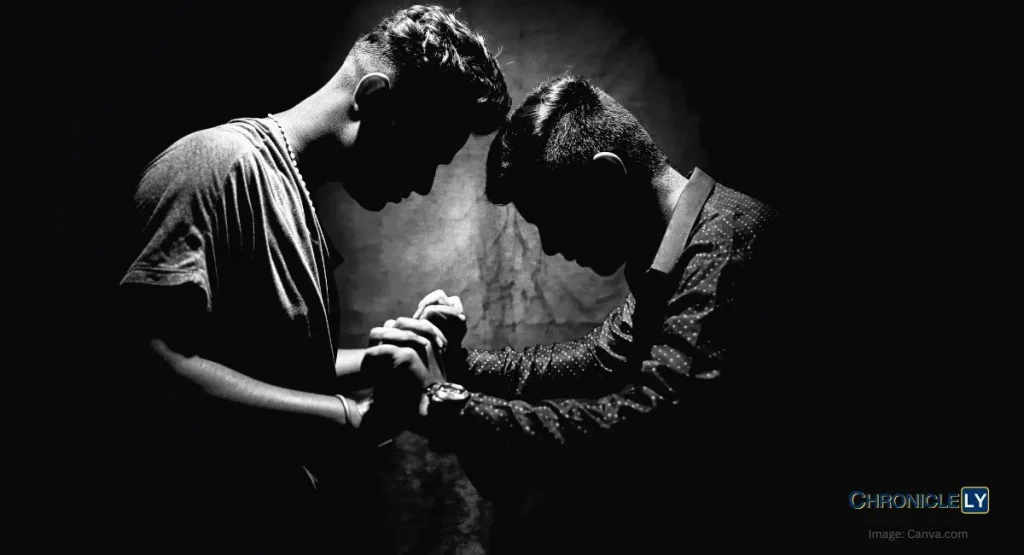We’ve all felt it—the desire to say those three little words, but for some reason, we just can’t get them out.
When you're with someone—a partner, family member, or close friend and you both feel something in the air, but for some reason, neither of you can quite say it.
“I love you.”
Such a small phrase, yet for so many of us, it feels like the hardest thing to say.
I’ve been there. I bet we all have. You want to say it, but somehow the words get stuck, tangled in your throat. Maybe you're afraid it won’t be returned. Maybe the timing doesn’t feel right. Or maybe you've heard "I love you" too soon or not enough, and now those three words feel more like a puzzle than an expression of love.
So, why do we struggle so much to say, “I love you”?
The Weight of the Words
Saying “I love you” seems simple, right? Or at least, it should be.
But for many of us, those three little words carry so much more. They're wrapped in past experiences, expectations, and sometimes even pain.
Love isn’t a one-size-fits-all thing. For some, saying it is effortless is a reflex. For others, it feels like scaling a mountain.
I remember the first time I said it. My heart was racing, my palms were sweating, and my mind was doing cartwheels.
“Will they say it back?”
“What if it’s too soon?”
“What if they don’t feel the same?”
But for me, those words didn’t just mean “I care about you.” They meant, “I’m here. I’m vulnerable. I trust you enough to see the deepest part of me.”
That’s a lot to carry in three words. No wonder it feels so heavy.
Fear of Rejection and the ‘What Ifs’
One of the biggest reasons we hold back is fear, fear of rejection. That haunting “what if”:
What if they don’t say it back?
What if I ruin the moment?
What if I make things awkward?
So, we wait. We overthink. We hesitate.
But here’s the truth: rejection doesn’t invalidate your love. It doesn't mean you were wrong to feel it. It just means the other person might not be in the same place, and that’s okay.
Love isn’t a race. It isn’t about being perfect. It's the imperfections that make it real.
The Different Ways We Show Love
Love isn’t always spoken out loud. Some people express love through actions, others through words, touch, or thoughtful gestures.
Maybe someone remembers how you take your coffee.
Maybe they send a random message just to check in.
Maybe they show up for you on your worst days without needing to be asked.
That’s love, too.
The sooner we recognize that love doesn’t always sound like “I love you,” the more we’ll start noticing how often it’s already being said quietly, in the background.
The Power of Vulnerability
Saying “I love you” is one of the bravest things you can do. It’s standing there, heart in hand, trusting the other person not to drop it.
For the longest time, I thought vulnerability was weakness.
Now I see its strength in its purest form.
Vulnerability is the birthplace of connection. When you open up, you create space for others to do the same.
And that’s where the magic happens.
Saying It Without Saying It
So, how do we get more comfortable saying “I love you”?
Start small. You don’t have to say it out loud at first. You can say it in the way you show up, the way you listen, the way you care consistently.
And if you’re feeling it? Say it. Don’t wait for the perfect moment.
Sometimes, you saying it first permits the other person to do the same.
Let go of the need to have it all figured out.
Love is messy, human, and real. There’s no formula. There’s just you, being there, being honest, being you.
Let’s Talk About It
You don’t have to wait. You don’t have to overthink. Just say it. To your partner. Your best friend. Your family.
And if someone says it to you?
Let it land. Say it back, if you feel it.
Let love move, imperfect and beautiful.
I know it’s tough. But once you let those words out, something shifts. The weight lifts.
You feel lighter. Freer. Connected.
Maybe that’s where we begin by being just a little braver, a little more open, and a whole lot more real.
It’s okay if you’re not ready yet, but when you are, just say it. Let love move through you, imperfect as it is."






